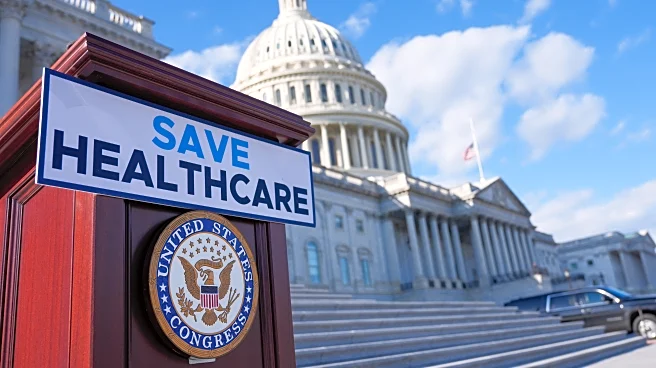Rapid Read • 7 min read
President Trump's new import tariffs have led to varied responses from major U.S. corporations. While companies like General Motors report negative impacts on their profits, others such as Google and Netflix have experienced growth. The tariffs, initially feared to be higher, have been adjusted, with recent announcements including a 15% tariff on Japanese imports. This has led to a more optimistic outlook among some businesses, particularly those less reliant on imports, such as tech firms and banks.
AD
The mixed reactions to President Trump's tariffs highlight the complex nature of trade policies and their impact on different sectors. While some industries face challenges, others benefit from the current economic environment. This situation underscores the importance of strategic planning and adaptability for businesses in navigating trade uncertainties. The tariffs could influence consumer prices and economic stability, affecting both corporate profits and consumer spending.
As the White House continues to finalize tariffs, businesses may need to adjust their strategies to mitigate potential impacts. Companies might explore alternative supply chains or cost-saving measures to maintain profitability. Additionally, ongoing trade negotiations could lead to further adjustments in tariff rates, influencing corporate strategies and economic forecasts.
The situation raises questions about the long-term implications of trade policies on global economic relations and domestic market dynamics. It may prompt discussions on the ethical considerations of tariff impositions and their effects on consumer welfare. The evolving trade landscape could lead to shifts in corporate priorities and investment strategies.
AD
More Stories You Might Enjoy










